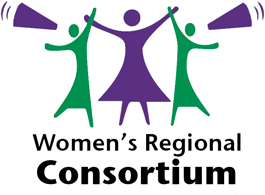The Consortium’s research paper on Women Living with Debt has now been published. Siobhán has been releasing the findings, quotes from women and recommendations on social media since it was launched.
The paper takes a comprehensive look at the literature and research on debt, debt levels in Northern Ireland, the links between debt and mental health, debt and social security benefits and the gendered nature of debt. The research provides a summary of the focus group research, questionnaires and individual interviews with local women. It detailed the amount and type of debt the women had, what external factors impact on their debts and the impact of debt on their lives and that of their children.
The main findings of the research were:
- 51% of the women had used high-cost credit with 6% borrowing through loan sharks including paramilitaries.
- 32% reported borrowing from friends/family.
- 19% had borrowed through Discretionary Support with many reporting issues with the application process/eligibility.
- 51% chose the lender because they knew they would get the money with only 2% choosing the lender because of the total cost of the credit.
- 60% of the women were finding it difficult to meet their debt repayments or missing repayments
- 35% reported using a foodbank as a result of debts/pressure to make ends meet
- 60% reported debt had been impacted by rising energy bills
- 60% reported debt had been impacted by rising food bills
- 72% felt negatively impacted by being in debt
- 47% felt their children were negatively impacted by their debts
The research shows the impact of Covid and the Cost of Living Crisis on women and their families. It highlights the difficulty many face living on a low income through social security benefits and in low paid work. The paper makes a number of recommendations for change including the need to invest in the social security system to ensure it provides sufficient income to help people live dignified, healthy lives without resorting to debt for the essentials. It also calls for the need for low or no cost borrowing to help those on the lowest incomes meet the costs of essential items.
The full version of the report is available on the Consortium’s website here and a shorter summary of the report is available here.

